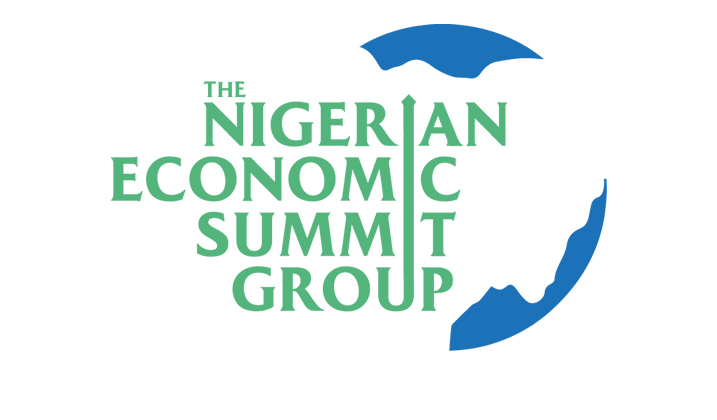The Nigerian Economic Summit Group (NESG) has urged the federal government to strengthen its reform momentum and prioritize economic stabilization strategies that will not only safeguard current gains but also set the stage for sustainable long-term growth. Speaking at the mid-year Private Sector Forum for 2025, the policy advocacy group outlined three key pillars that it believes are critical for Nigeria’s future: business continuity, improved productivity and job creation, and expanded social protection systems for vulnerable households.
According to NESG, recent reforms have helped the country recover from years of volatility, with modest improvements recorded across various economic indicators. Reforms such as the removal of fuel subsidies, adjustments in foreign exchange management, and new regulatory measures in the energy sector have combined to stabilize the macroeconomic environment. Early data suggests the economy is showing signs of resilience, with growth strengthening in the first quarter of 2025. Inflation, though still high, has begun to ease, while trade balances and capital inflows have improved compared to the same period last year.

Niyi Yusuf, Chairman of NESG, emphasized that the results seen so far prove reforms can work when they are consistent and properly implemented. He noted that Nigeria’s gross domestic product (GDP) expanded by more than 3 percent in early 2025, a figure higher than projections made a year ago. Similarly, foreign reserves have remained robust, offering a buffer against external shocks, while the country has also recorded an encouraging rise in foreign investment inflows. Despite these improvements, Yusuf cautioned that Nigeria remains far from its desired growth trajectory, especially when compared to other emerging economies.
The group believes that for Nigeria to sustain its recovery, it must adopt measures that specifically support private sector-led growth. NESG’s Chief Economist, Dr. Olusegun Omisakin, explained that while monetary policy has helped contain inflation, its restrictive stance has also constrained access to credit for businesses. He revealed that growth in private sector credit has slowed dramatically, creating challenges for companies that are struggling to expand operations or invest in new projects. This, according to him, is a worrying trend because private businesses are the engine of job creation and innovation.
Omisakin projected that Nigeria could close the year with GDP growth approaching 4 percent if reforms continue, but warned that this would not be sufficient to achieve the scale of development required to reduce poverty and unemployment. He stressed the need for structural reforms that tackle energy bottlenecks, address persistent food inflation, and strengthen industrial capacity. Without these interventions, he argued, the economy will remain stuck in a cycle of modest growth, insufficient to meet the aspirations of its large and growing population.
The call for a more inclusive growth strategy was echoed by Taiwo Oyedele, Chairman of the Presidential Fiscal Policy and Tax Reforms Committee, who highlighted the importance of creating jobs as the foundation of effective fiscal management. He pointed out that government revenues are tied to the productivity of citizens, meaning that without higher employment levels and rising incomes, tax collection will continue to fall short of its potential. Oyedele stressed that policies designed to expand the tax base must therefore be matched with policies that drive economic expansion in sectors with high job creation potential.
Beyond the macroeconomic figures, NESG also emphasized the importance of strengthening social protection systems. Rising living costs, driven by inflation and currency adjustments, have increased the vulnerability of many households. The group urged government to invest more in social welfare initiatives that provide safety nets for the poor and ensure that reform benefits are not limited to a narrow segment of the population. This, it argued, would also help build public support for ongoing reforms, which is crucial for sustaining momentum.
Another area of concern raised at the forum was the fragility of Nigeria’s manufacturing and agricultural sectors, both of which continue to struggle despite policy interventions. Industry players say high energy costs, logistics bottlenecks, and insecurity in food-producing regions remain serious challenges. NESG recommended targeted measures to stabilize these sectors, warning that Nigeria cannot achieve meaningful industrialization without strengthening domestic production.
While acknowledging the progress made under the current administration, NESG urged policymakers to move beyond short-term stabilization measures and adopt a forward-looking growth strategy. The group stressed that improving competitiveness, investing in human capital, and deepening structural reforms are essential steps to ensure the country can attract sustainable investment and deliver prosperity for its citizens.
For businesses, the message from the forum was clear: opportunities exist in Nigeria’s market, but they require supportive policies to unlock their full potential. NESG assured private sector players that it would continue to advocate for reforms that create an enabling environment for investment, innovation, and long-term growth.
In conclusion, the group noted that Nigeria stands at a pivotal moment. The progress made in stabilizing the economy should not be underestimated, but neither should the challenges ahead. Without decisive reforms that address structural weaknesses, Nigeria risks losing momentum. NESG therefore called for urgent collaboration between government, private sector, and civil society to design and implement policies that secure the gains already made while driving inclusive and sustainable growth.
Ultimately, Nigeria’s economic recovery will be judged not only by GDP numbers but by the ability of reforms to improve the lives of ordinary citizens. For this reason, NESG insists that the government must stay the course, deepen reforms, and place productivity and social welfare at the center of its growth strategy.
Support InfoStride News' Credible Journalism: Only credible journalism can guarantee a fair, accountable and transparent society, including democracy and government. It involves a lot of efforts and money. We need your support. Click here to Donate
